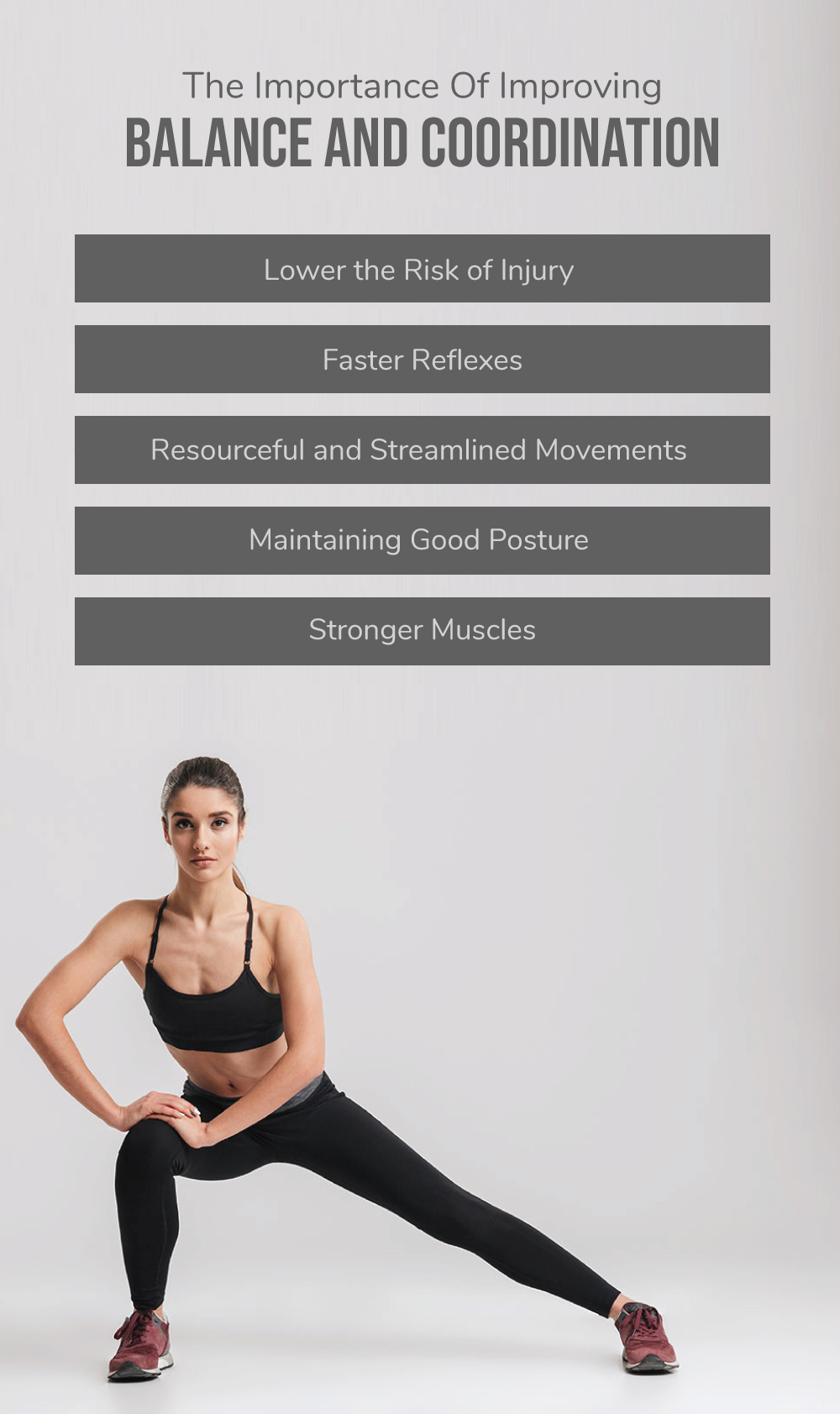Maintaining Body Balance and Coordination to Improve Fitness

Why is Body Balance Important?
Body balance refers to the ability to maintain an upright position and control movements while standing or performing other activities. It involves a complex interaction between the sensory, motor, and neural systems in our body. Poor balance can lead to falls and injuries, especially in the elderly. By improving your body balance, you can reduce the risk of falling and enhance your overall physical performance.
How to Improve Body Balance?
Here are some tips to improve your body balance:
- Practice standing on one foot for as long as possible
- Use a balance board or stability ball to challenge your balance
- Try yoga or tai chi, which focus on balance and coordination
- Include exercises that target your core muscles, such as planks and side planks
The Benefits of Body Balance Exercises
Some of the benefits of body balance exercises include:
- Improved posture and stability
- Reduced risk of falls and injuries
- Better athletic performance
- Enhanced body awareness and control
Why is Coordination Important?
Coordination refers to the ability to use different parts of your body together smoothly and efficiently. It involves the integration of sensory, motor, and cognitive processes. Good coordination is essential for performing everyday tasks and sports activities. It can also help prevent injuries and enhance performance.
How to Improve Coordination?
Here are some tips to improve your coordination:
- Practice hand-eye coordination exercises, such as juggling or catching a ball
- Try balance and agility drills, such as ladder drills or cone drills
- Include exercises that involve multiple muscle groups, such as squats or lunges
- Take up a dance or martial arts class, which require coordination and rhythm
The Benefits of Coordination Exercises
Some of the benefits of coordination exercises include:
- Improved motor skills and reaction time
- Better athletic performance
- Enhanced brain function and cognitive abilities
- Reduced risk of injuries
Advantages and Disadvantages
Advantages
- Reduced risk of injuries
- Better athletic performance
- Enhanced brain function and cognitive abilities
Disadvantages
- Requires consistent practice and effort
- May not be suitable for individuals with certain medical conditions
Conclution
Body balance and coordination are essential aspects of fitness that are often overlooked. By incorporating exercises that target these areas, you can reduce the risk of injuries, improve your overall performance, and enhance your quality of life. Remember to start with basic exercises and gradually increase the intensity and complexity. Always consult with a healthcare professional before starting a new exercise routine.
FAQs
1. What are some simple exercises to improve body balance?
Some simple exercises to improve body balance include standing on one foot, using a balance board or stability ball, and practicing yoga or tai chi.
2. Can coordination be improved with age?
Yes, coordination can be improved with age through consistent practice and effort.
3. Are there any medical conditions that may affect body balance and coordination?
Yes, medical conditions such as Parkinson's disease, multiple sclerosis, and stroke can affect body balance and coordination.
4. Can body balance and coordination exercises help prevent falls in the elderly?
Yes, body balance and coordination exercises can help prevent falls in the elderly by improving their stability and reducing the risk of injuries.
